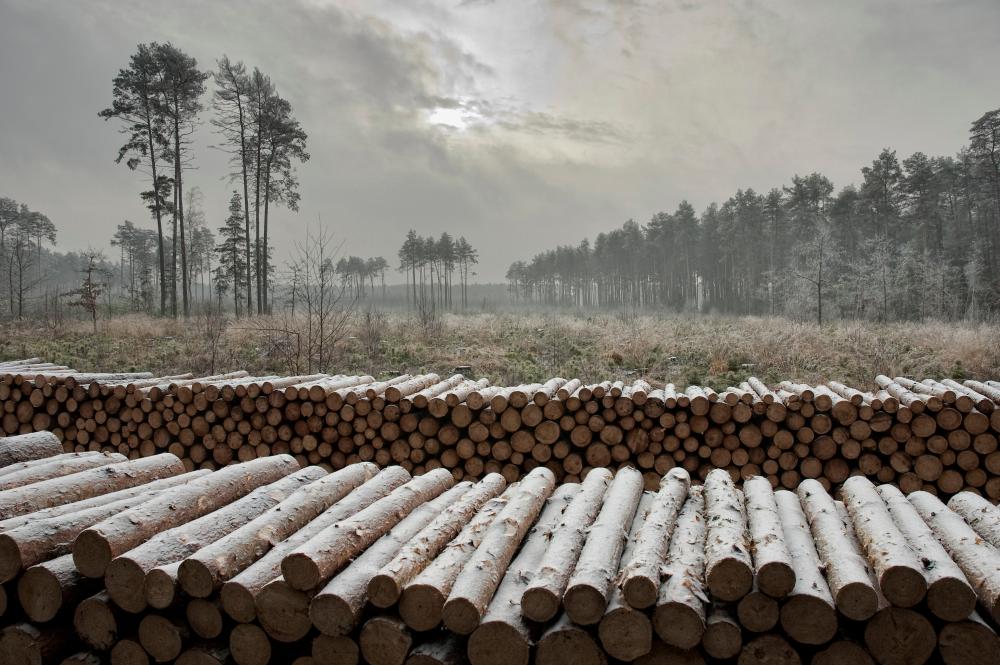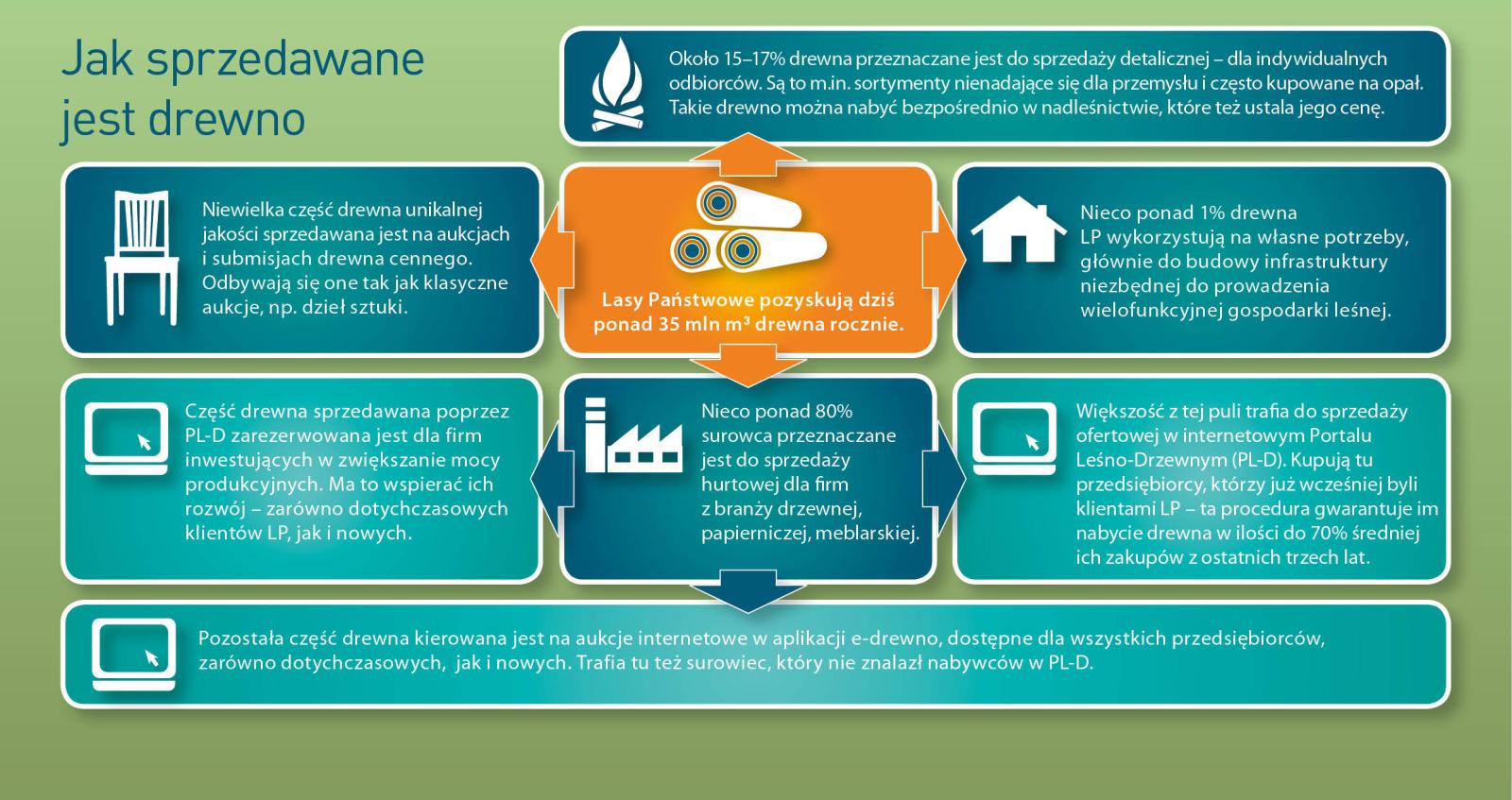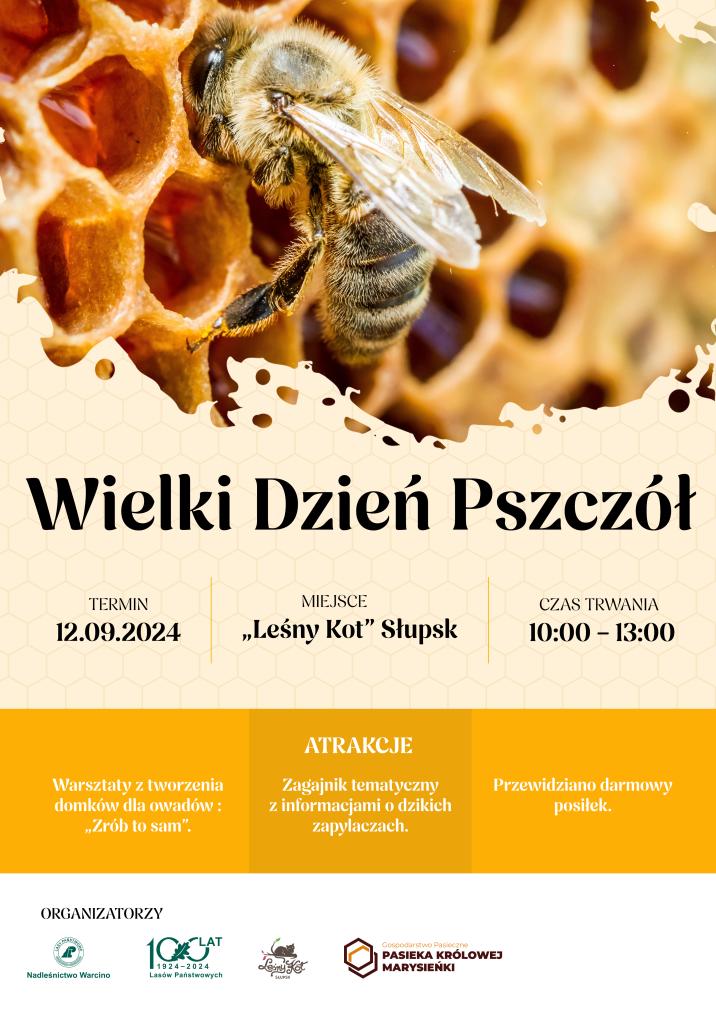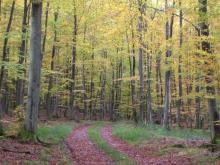 Asset Publisher
Asset Publisher
Sale conditions
Sale conditions of wood are specified by the regulation of Director – General of the Sate Forests.
Within the framework of the individual sale , the foresters try to meet the fast growing demand, because more and more people use wood in order to heat their houses. Contrary to general opinion, these are not only village people, even though they prevail among recipients. The growth of firewood demand is the result of occurrence of new housing estates built in the suburbs of large agglomerations, where houses are usually equipped in fireplace heating installations.
Firewood is not only the most ecological heat source, but also is much more attractive in respect of relation of price and electric efficiency, rather than cola, oil, gas or electric power.
In recent years, the Sate Forests increased the sale of firewood of one third – up to over 4 million cubic meters annually. Firewood is not only the most ecological heat source, but also is much more attractive in respect of relation of price and electric efficiency, rather than cola, oil, gas or electric power. Some of customers choose already prepared and cut into pieces wood, the others very willingly obtain it by themselves after arranging all details and fulfilling particular safety conditions, and after paying the fee; that concerns mainly so called "thinnings". Such a raw material is very cheap, that is why many people from village areas profit from such possibility.
 Asset Publisher
Asset Publisher
"Wielki Dzień Pszczół"
"Wielki Dzień Pszczół"
|
Podczas trwania wydarzenia Nadleśnictwo Warcino przeprowadzi otwarte warsztaty z wykonywania hoteli dla owadów. Na stanowisko warsztatowym dostępny będzie również zagajnik tematyczny o dzikich zapylaczach (zdjęcia, infografiki, przykładowe hotele dla owadów), w którym przeprowadzane będą otwarte rozmowy i dyskusje na tematy związane z działaniami Lasów Państwowych na rzez ochrony owadów zapylających czyli m.in.: sadzenie miododajnych gatunków drzew i krzewów, zwiększanie ilość pożytków. Budowanie hoteli dla zapylaczy, a także nieodpłatnie udostępnianie lasu pszczelarzom w celu ustawienia pasiek. Wieszanie kłód bartnych w celu stworzenia nowych miejsca do życia pszczół, wykorzystując przy tym metody tradycyjnego bartnictwa oraz zakładanie łąk kwietnych. Edukowanie zainteresowanych odnośnie tego, co każdy we własnym zakresie może zrobić dla zapylaczy tj. ograniczenie stosowania chemii w ogrodzie, zmniejszenie obszaru koszonego trawnika, założenie łąki kwietnej, posadzenie pyłkodajnych i nektarodajnych roślin, dostosowanie godzin zabiegów w ogrodzie do aktywności owadów oraz stworzenia bezpiecznego poidełka dla owadów. |
Termin: 12.09.2024r.
Czas: 10:00 – 13:00
Miejsce: Leśny Kot w Słupsku
Zapraszamy.





